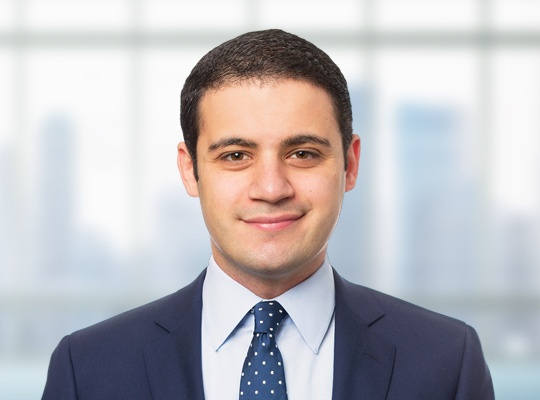Congress Restores and Codifies Expansive SEC Disgorgement Authority
Overriding a presidential veto, Congress on January 1, 2021 enacted the William M. (Mac) Thornberry National Defense Authorization Act (NDAA) for Fiscal Year 2021.1 In part, the NDAA restored significant enforcement powers to the Securities and Exchange Commission that recently had been limited through two landmark Supreme Court decisions – Kokesh v. SEC (2017)2 and Liu v. SEC (2020).3 The passage of this legislation, which inter alia codifies the SEC’s ability to seek disgorgement in federal court actions, is a bold statement by Congress in support of the SEC’s enforcement program.
Limitations to Disgorgement Previously Set by the Supreme Court
The SEC has a long tradition of seeking “disgorgement” (the return of any “ill-gotten gains”) through its civil enforcement actions in federal district court for violations of U.S. securities laws. This disgorgement power historically stemmed from the SEC’s power to seek “any equitable relief that may be appropriate or necessary for the benefit of investors.”4 In recent years, the SEC has obtained billions of dollars in disgorgement awards from respondents, including a record-setting $3.59 billion in 2020.5
However, the Supreme Court limited the SEC’s power to seek disgorgement in two recent decisions. First, in Kokesh v. SEC, the Court limited the length of time during which the SEC could seek disgorgement, holding that disgorgement in the securities context is a “penalty” under 28 U.S.C. § 2462, and therefore is subject to a five-year statute of limitations.6 Three years later, in Liu v. SEC, the Court affirmed the Commission’s power to seek disgorgement as equitable relief, but only if the award: (1) is for the benefit of victims harmed by the relevant misconduct; (2) is not based on joint-and-several liability; and (3) excludes any “legitimate expenses,” so that only net profits are recoverable.7
The recency of the Supreme Court decisions, particularly the Liu decision, has meant that all practical impacts of those decisions have not yet been fully manifested. As noted as recently as in its 2020 Annual Report, the Enforcement Division was in the process of “evaluat[ing] the impact of [the Liu] decision and how the questions that the Court left open w[ould] affect [the agency] going forward.”8 Specifically, the Division stated that there would “be changes in the balance between the penalties and disgorgement that the Division seeks and recommends to the Commission,” indicating that higher “penalties” likely would be sought due to the limitations placed on “disgorgement.” The passage of the NDAA obviates at least some of these uncertainties.
NDAA Amendments to Exchange Act
Section 6501 of the NDAA amends Section 21(d) of the Securities Exchange Act of 1934 in several ways. Most notably, Section 6501 overrides several key aspects of both the Kokesh and Liu decisions.
The NDAA codifies the SEC’s ability to seek disgorgement in federal court proceedings and establishes separate statutes of limitations for different claims the SEC may bring. For scienter-based fraud claims – including those under Section 10(b) of the Exchange Act, Section 17(a)(1) of the Securities Act of 1933, Section 206(1) of the Investment Advisers Act of 1940, and any other provision of the securities laws for which scienter must be established – the SEC must bring a claim for disgorgement within “10 years after the latest date of the violation that gives rise to the action or proceeding.”9 The SEC must bring all other types of claims for disgorgement within five years after the last date of the violation that gives rise to the action or proceeding.10
The statute therefore repudiates the more limited five-year period prescribed under Kokesh, at least for cases involving scienter-based fraud. As a practical matter, the longer period for disgorgement awards permissible in scienter-based claims may result in an increased emphasis by the SEC on those charges, as well as an increased focus on individuals based on the need to impute an individual’s scienter in order to charge an entity with a scienter-based violation. Consequently, the threat of exposure to doubling the disgorgement period may incentivize respondents to agree to larger disgorgement amounts or increased civil penalties in a settlement, in order to avoid litigation and the scarlet letter of a scienter-based fraud charge.
The NDAA also makes clear that disgorgement can only be sought from “the person who received such unjust enrichment as a result of such violation.” Under Liu, as an equitable remedy, the Commission was required to deduct “legitimate expenses” from any disgorgement amount and, therefore, could only seek disgorgement amounting to “net profits.” Whether there is a distinction between “unjust enrichment,” as specified in Section 6501 and “net profits,” subject to the equitable limitations proscribed in Liu, likely will be addressed in the courts. But Liu’s “net profits” limit arguably is still operative.
Moreover, the Liu court left open, but seriously questioned, whether the SEC could pursue disgorgement based on joint-and-several liability, noting that “[e]quity courts also generally awarded profits-based remedies against individuals or partners engaged in concerted wrongdoing, not against multiple wrongdoers under a joint-and-several liability theory.” The Court acknowledged that the “SEC additionally has sought to impose disgorgement liability on a wrongdoer for benefits that accrue to his affiliates, sometimes through joint-and-several liability, in a manner sometimes seemingly at odds with the common-law rule requiring individual liability for wrongful profits.” The Court went on to suggest “[t]hat practice could transform any equitable profits-focused remedy into a penalty.” With regard to the SEC’s claims in Liu, the Court decided to “leave it to the Ninth Circuit on remand to determine whether the facts are such that petitioners can, consistent with equitable principles, be found liable for profits as partners in wrongdoing or whether individual liability is required.” The NDAA, however, expressly provides that the Commission may only seek disgorgement from “the person who received such unjust enrichment,” likely ruling out efforts by the Commission to seek joint-and-several liability where unjust enrichment cannot be proven. As respondents argue that the limitations established in Liu still apply to disgorgement more broadly, they will likely point to this prohibition on joint-and-several liability as evidence that disgorgement still is based primarily on equitable principles.
The statutory authority to seek disgorgement also seemingly moots the question raised by Liu as to whether disgorgement is an available equitable remedy where disgorged funds could not be returned to harmed investors. Where distribution to investors is impracticable, either, for example, because the amounts are de minimis or because harmed investors cannot be located, disgorged funds previously often were paid to the U.S. Treasury. If the SEC could seek disgorgement only where the disgorged funds could be returned to harmed investors, that limitation would have severely curtailed disgorgement as a remedy.11 As a legal remedy, the SEC is likely to argue that disgorgement is no longer so limited, while respondents will litigate the question of whether any of Liu’s limits on equitable relief still apply to disgorgement awards.
In addition, the NDAA further imposes a statute of limitations for “any equitable remedy,” including injunctions, bars, suspensions, or cease-and-desist orders, thus providing the SEC up to 10 years after the latest date on which a violation giving rise to the claim occurs to bring such a claim. Previously, the Commission arguably was not constrained by a statute of limitations for equitable remedies.
Retroactive Application of NDAA
Section 6501(a)(3) provides that the new disgorgement provisions “apply with respect to any action or proceeding that is pending on, or commenced on or after, the date of [the NDAA’s] enactment,” meaning Congress intends for the new disgorgement statute of limitations to be applied retroactively. The SEC already has suggested in at least one case that it believes it can amend complaints in pending cases based on the new statute of limitations.12 However, respondents are likely to argue that any attempts to bring in new allegations or seek disgorgement based on the now 10-year statute of limitations would be manifestly unfair and run afoul of the reluctance of courts to enforce laws retroactively.
Conclusion
Congress’ decision to override the Supreme Court’s decisions in Kokesh and Liu will no doubt have a significant impact on the Enforcement Division’s activity. Most notably, the Commission likely will: seek larger disgorgement relief; open investigations looking back further in time; and focus on establishing the scienter of individuals. In addition, SEC staff may decide to bring more scienter-based claims against market participants because of the significantly longer statute of limitations of such claims. Moving forward, the defense bar is certain to litigate the extent to which the Kokesh and Liu limits on disgorgement are still good law. In the near term, however, Congress has strengthened the Enforcement Division’s hand in cases where disgorgement awards could be significant.
Footnotes
1) Pub. L. No. 116-283 (to be codified at 15 U.S.C. § 78u(d)).
2) 581 U.S. ___, 137 S. Ct. 1635 (2017).
3) 591 U.S. ___, 140 S. Ct. 1936 (2020).
4) Exchange Act § 21(d)(5) (emphasis added).
5) Division of Enforcement: 2020 Annual Report, U.S. Securities and Exchange Commission (2020 Annual Report), at p. 17. For further information regarding the 2020 Annual Report, please refer to Dechert OnPoint, SEC Enforcement Division Releases 2020 Annual Report: COVID-19 Impacts Enforcement as Whistleblower Program Boosts Enforcement.
6) For further information regarding the Kokesh decision, please refer to Dechert OnPoint, Supreme Court Recognizes Five-Year Statute of Limitations for SEC Disgorgement Claims
7) For further information regarding the Liu decision, please refer to Dechert OnPoint, The Supreme Court Affirms, But Limits, The SEC’s Disgorgement Authority.
8) 2020 Annual Report, supra note 4, at p. 7.
9) NDAA § 6501(a)(3).
10) Note that both the five-year and ten-year statutes of limitations are tolled for any time a respondent spends outside the United States. Id.
11) The Enforcement Division noted in its Annual Report that it had returned $602 million to investors, a small fraction of the $3.59 billion in total disgorgement recovered. 2020 Annual Report at 18. Therefore, absent the new statutory authority, Liu likely would have had a significant impact on disgorgement recovery if disgorgement amounts had to be returned directly to investors.
12) Jody Godoy, SEC Mulls Expanding Ongoing Cases After Law Change, Jan. 6, 2021.





